Enhanced Validation provides an extra layer of security
One key factor for reproducible research is to use antibodies that have been thoroughly validated for the application and model system that will be used in.
At Atlas Antibodies, we have always worked extensively with antibody validation and with producing highly characterized antibodies our customers can trust.
Enhanced validation offers increased security of antibody specificity in a defined context. This is ensured by using the most relevant validation method for each combination of protein, sample and application.
Watch our 2 min movie about antibodies and enhanced validation: “How Enhanced Validation by Atlas Antibodies” helps you to get your research published”.
Explore our antibodies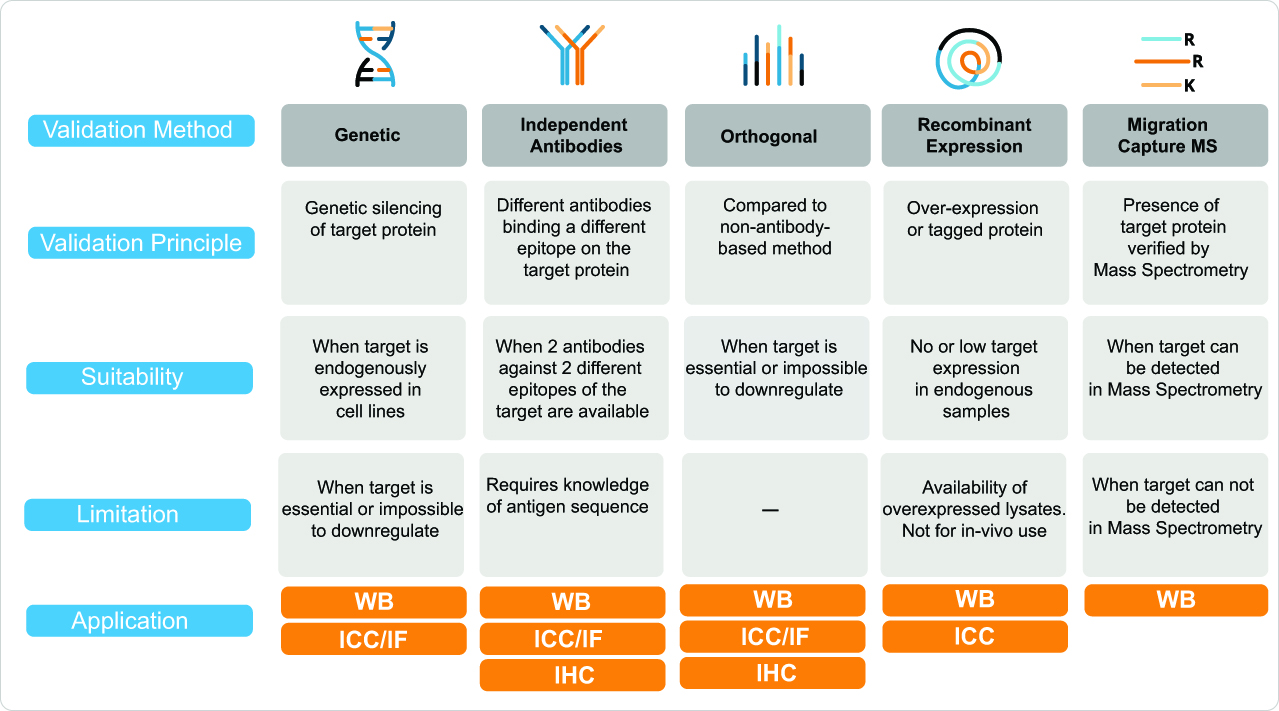
The Five Methods of Enhanced Validation
Validation of antibodies is an experimental confirmation that an antibody is suitable for its intended use. It is important to understand that antibody validation is application- and context specific
The enhanced validation follows the guidelines proposed by the International Working Group for Antibody Validation (IWGAV) published by Uhlen et al. “A proposal for validation of antibodies” in Nature Methods, 2016.
The working group was formed by distinguished researchers from around the world to “formulate the best approaches for validating antibodies used in common research applications and to provide guidelines that ensure antibody reproducibility.”
This resulted in five conceptual pillars for antibody validation, to be used in an application-specific manner. At least one of the pillars should be used for an antibody to be validated in a specific application.
Learn moreExamples of Enhanced Validation for WB and IHC
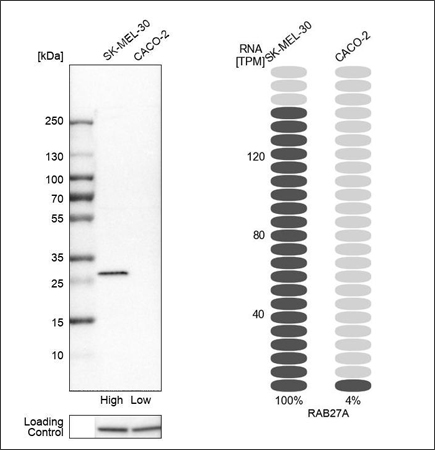
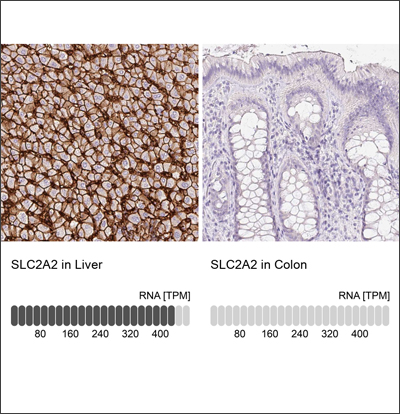
Orthogonal Validation
(left) WB analysis in human cell lines SK-MEL-30 and Caco-2 using Anti-RAB27A antibody (HPA001333). Corresponding RAB27A RNA-seq data (TPM values) is presented for the same cell lines. (right) IHC staining of liver and colon tissues using Anti-SLC2A2 antibody (HPA028997). The corresponding RNA-Seq data (TPM values) for the same tissues are presented below.
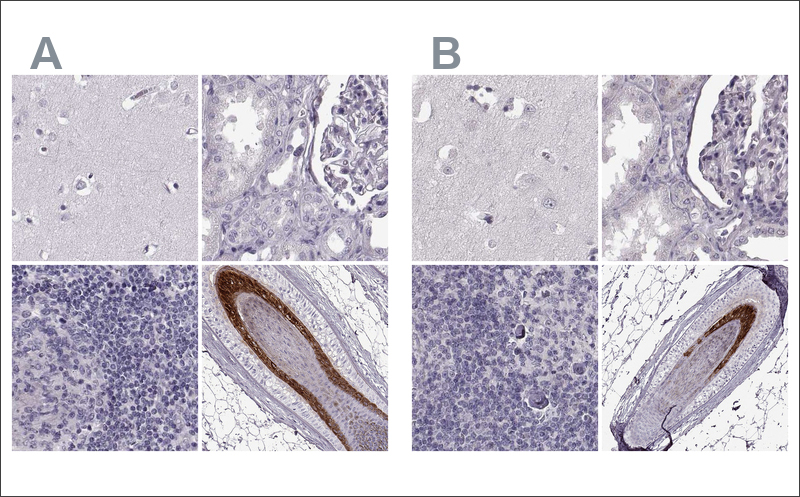
Independent Validation
IHC stainings of two Anti -TCHHL1 antibodies HPA063483 (A) and HPA042579 (B) in cerebral cortex, kidney, lymph node and skin. These two antibodies target different regions of TCHHL1. Antibody stainings across relevant positive and negative tissues are similar between the two antibodies so they validate each other.
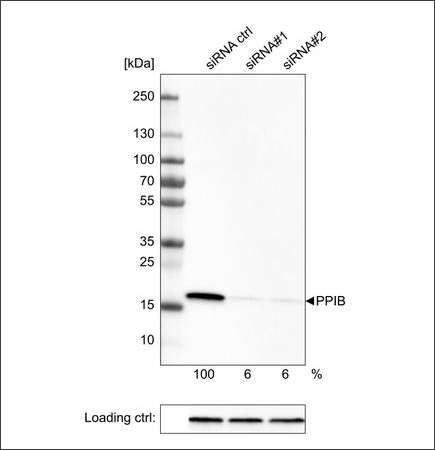
Genetic Validation
Genetic validation by siRNA knock down in WB using the Anti-PPIB antibody. U-251 cells have been transfected with control siRNA and two target specific siRNA probes. Downregulation of antibody signal confirms target specificity. The remaining intensity relative to the control lane is indicated as a percentage.
Resources

In our blog we share educational content and our best advices on antibodies validation, immunohistochemistry, Human Protein Atlas and much more. Sign up to never miss a new blog post.
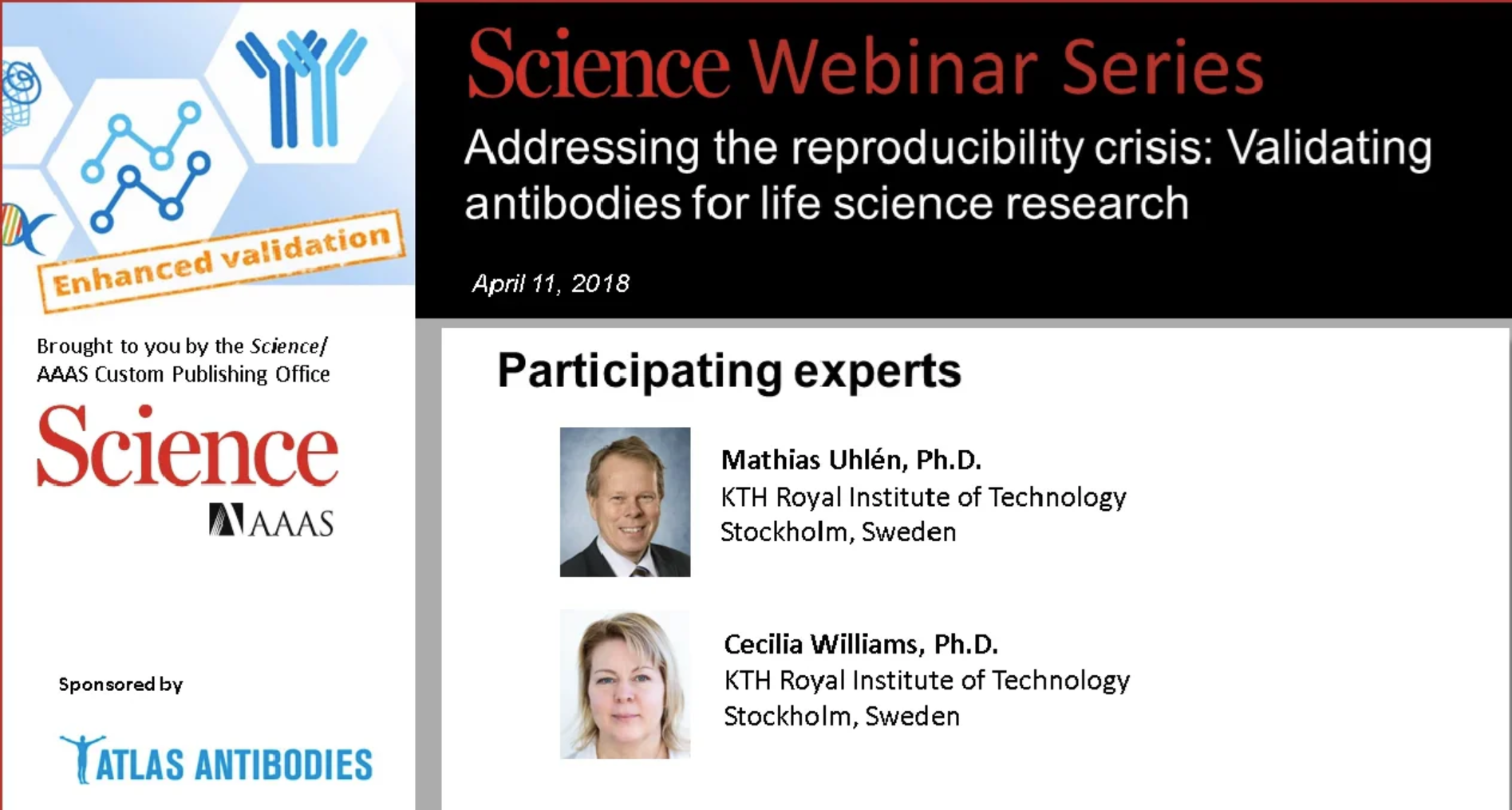
In this webinar, Prof. Mathias Uhlén and Prof. Cecilia Williams, from the KTH Royal Institute of Technology in Stockholm Sweden, discuss how to address the reproducibility crisis in science.
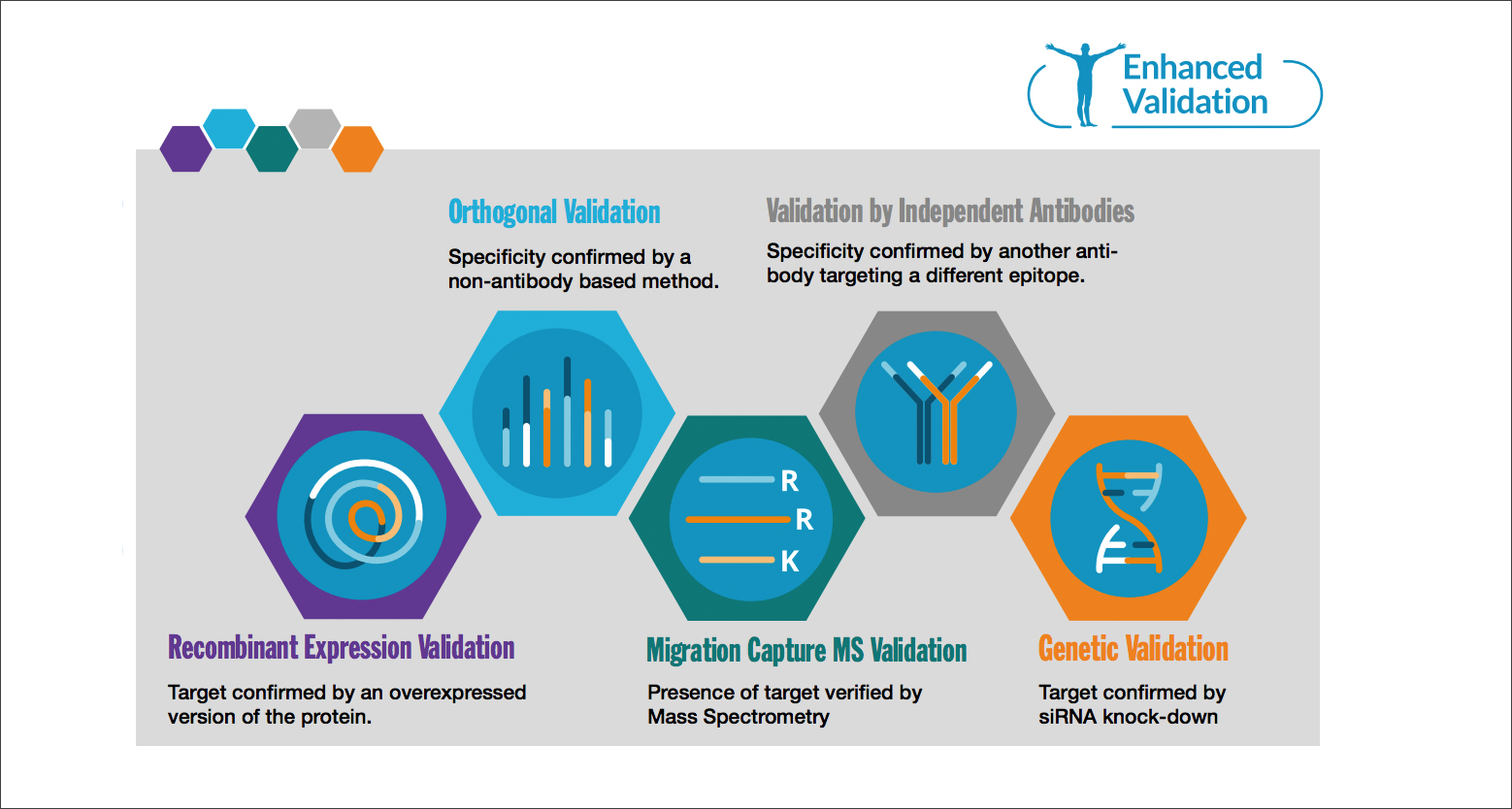
This White Paper provides an overview of how our antibodies are characterized and validated.

